Irritable bowel syndrome, commonly known as IBS, is a chronic gastrointestinal disorder that affects millions of people around the world. Characterized by symptoms such as abdominal pain, bloating, diarrhea, and constipation, IBS can significantly impact a person’s quality of life. While there is no cure for IBS, there are various ways to manage its symptoms, including dietary changes. One such dietary option that has gained attention in recent years is dry roasted peanuts. In this article, we will explore the relationship between dry roasted peanuts and IBS and how incorporating them into your diet could potentially help alleviate your symptoms. First, let’s delve into what exactly dry roasted peanuts are and how they differ from other types of peanuts. Dry roasted peanuts are plain peanuts that have been roasted without the use of oil or added fats. This roasting process gives the peanuts a crunchy texture and a rich, toasty flavor that is beloved by many. Unlike peanuts that are roasted in oil, dry roasted peanuts are lower in fat and calories, making them a healthier snack option for those watching their weight or trying to improve their overall diet.
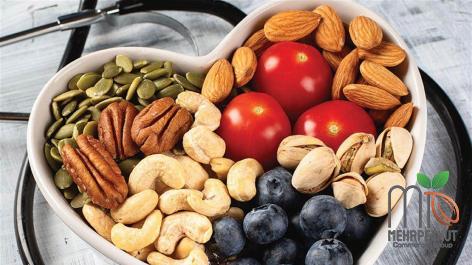
.
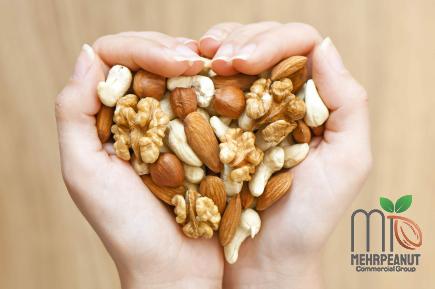 Now, you may be wondering how dry roasted peanuts could possibly benefit individuals with IBS. While there is limited research specifically on the effects of dry roasted peanuts on IBS symptoms, there are some potential reasons why they may be helpful. Peanuts are a good source of fiber, protein, and healthy fats, all of which are important components of a balanced diet that may help alleviate symptoms of IBS. Fiber, in particular, can help regulate bowel movements and promote digestive health, which can be beneficial for individuals with IBS who experience constipation or diarrhea. Moreover, dry roasted peanuts are a convenient and versatile snack that can easily be incorporated into your daily diet. Whether eaten on their own as a quick snack or added to salads, stir-fries, or oatmeal for some extra crunch and flavor, dry roasted peanuts can be a delightful addition to your meals. They are also a great source of plant-based protein, making them an excellent option for vegetarians and vegans looking to increase their protein intake. When it comes to managing IBS symptoms, it is essential to pay attention to your body and how it responds to different foods. While dry roasted peanuts may have benefits for some individuals with IBS, others may find that they exacerbate their symptoms. It is important to listen to your body and keep track of how you feel after eating certain foods, including dry roasted peanuts. If you notice that peanuts trigger your symptoms, it may be best to avoid them or limit your intake. In addition to incorporating dry roasted peanuts into your diet, there are several other dietary and lifestyle changes you can make to help manage your IBS symptoms.
Now, you may be wondering how dry roasted peanuts could possibly benefit individuals with IBS. While there is limited research specifically on the effects of dry roasted peanuts on IBS symptoms, there are some potential reasons why they may be helpful. Peanuts are a good source of fiber, protein, and healthy fats, all of which are important components of a balanced diet that may help alleviate symptoms of IBS. Fiber, in particular, can help regulate bowel movements and promote digestive health, which can be beneficial for individuals with IBS who experience constipation or diarrhea. Moreover, dry roasted peanuts are a convenient and versatile snack that can easily be incorporated into your daily diet. Whether eaten on their own as a quick snack or added to salads, stir-fries, or oatmeal for some extra crunch and flavor, dry roasted peanuts can be a delightful addition to your meals. They are also a great source of plant-based protein, making them an excellent option for vegetarians and vegans looking to increase their protein intake. When it comes to managing IBS symptoms, it is essential to pay attention to your body and how it responds to different foods. While dry roasted peanuts may have benefits for some individuals with IBS, others may find that they exacerbate their symptoms. It is important to listen to your body and keep track of how you feel after eating certain foods, including dry roasted peanuts. If you notice that peanuts trigger your symptoms, it may be best to avoid them or limit your intake. In addition to incorporating dry roasted peanuts into your diet, there are several other dietary and lifestyle changes you can make to help manage your IBS symptoms.
..
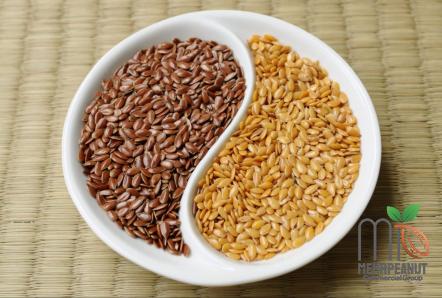 Eating a well-balanced diet that includes plenty of fruits, vegetables, whole grains, and lean proteins can help support overall digestive health. It may also be beneficial to limit your intake of trigger foods such as caffeine, alcohol, spicy foods, and artificial sweeteners, as these can worsen IBS symptoms in some individuals. Incorporating stress-reducing activities such as yoga, meditation, or exercise into your daily routine can also help manage IBS symptoms, as stress and anxiety are known triggers for many people with IBS. Getting an adequate amount of sleep, staying hydrated, and avoiding smoking can further support your digestive health and overall well-being. In conclusion, while there is no one-size-fits-all approach to managing IBS, incorporating dry roasted peanuts into your diet may offer some benefits for individuals looking to alleviate their symptoms. As with any dietary change, it is essential to listen to your body and consult with a healthcare provider or registered dietitian if you have concerns about how certain foods may affect your IBS symptoms. By making informed choices about your diet and lifestyle, you can take proactive steps to manage your IBS and improve your quality of life. In addition to dietary modifications, there are other natural remedies and strategies that can help manage IBS symptoms. One popular method is probiotics, which are beneficial bacteria that can help restore a healthy balance of gut flora. Probiotics can be found in foods such as yogurt, kefir, sauerkraut, and kimchi, or taken as supplements. Some studies suggest that probiotics may help alleviate symptoms of IBS, such as bloating and abdominal pain, by promoting a healthy gut microbiome. Another natural approach to managing IBS is through herbal remedies.
Eating a well-balanced diet that includes plenty of fruits, vegetables, whole grains, and lean proteins can help support overall digestive health. It may also be beneficial to limit your intake of trigger foods such as caffeine, alcohol, spicy foods, and artificial sweeteners, as these can worsen IBS symptoms in some individuals. Incorporating stress-reducing activities such as yoga, meditation, or exercise into your daily routine can also help manage IBS symptoms, as stress and anxiety are known triggers for many people with IBS. Getting an adequate amount of sleep, staying hydrated, and avoiding smoking can further support your digestive health and overall well-being. In conclusion, while there is no one-size-fits-all approach to managing IBS, incorporating dry roasted peanuts into your diet may offer some benefits for individuals looking to alleviate their symptoms. As with any dietary change, it is essential to listen to your body and consult with a healthcare provider or registered dietitian if you have concerns about how certain foods may affect your IBS symptoms. By making informed choices about your diet and lifestyle, you can take proactive steps to manage your IBS and improve your quality of life. In addition to dietary modifications, there are other natural remedies and strategies that can help manage IBS symptoms. One popular method is probiotics, which are beneficial bacteria that can help restore a healthy balance of gut flora. Probiotics can be found in foods such as yogurt, kefir, sauerkraut, and kimchi, or taken as supplements. Some studies suggest that probiotics may help alleviate symptoms of IBS, such as bloating and abdominal pain, by promoting a healthy gut microbiome. Another natural approach to managing IBS is through herbal remedies.
…
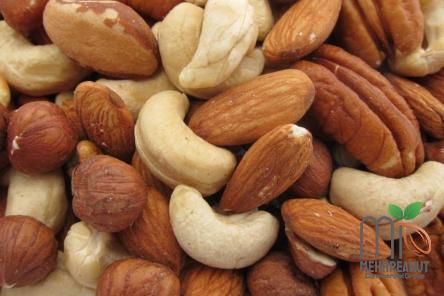 Peppermint oil, for example, has been shown to have a relaxing effect on the muscles of the digestive tract, which can help reduce symptoms of IBS such as cramping and bloating. Ginger, chamomile, and fennel are other herbs that are believed to have digestive benefits and may help soothe the symptoms of IBS when consumed as teas or supplements. Additionally, mindfulness-based practices such as meditation, deep breathing, and progressive muscle relaxation can help reduce stress and anxiety, which are common triggers for IBS symptoms. Mindful eating, where you pay attention to your food and how it affects your body, can also help improve digestion and reduce discomfort associated with IBS. It’s important to keep in mind that what works for one person with IBS may not work for another. It may require some trial and error to find the right combination of dietary changes, lifestyle modifications, and natural remedies that work best for you. Keeping a food journal to track your symptoms and identifying patterns can be helpful in pinpointing trigger foods and activities that worsen your IBS symptoms. While dry roasted peanuts may offer some potential benefits for individuals with IBS, it is essential to approach any dietary change with caution and awareness of your body’s unique needs. If you have concerns about how certain foods, including peanuts, may affect your IBS symptoms, it’s always best to consult with a healthcare provider or a registered dietitian who can provide personalized recommendations based on your specific situation. In conclusion, managing IBS is a journey that requires patience, experimentation, and a holistic approach that takes into account both dietary and lifestyle factors. By making informed choices about your diet, incorporating natural remedies, and practicing stress-reducing techniques, you can take proactive steps to alleviate your symptoms and improve your overall quality of life. Remember that you are not alone in your journey with IBS, and there are resources and support available to help you navigate this condition and live your best life.
Peppermint oil, for example, has been shown to have a relaxing effect on the muscles of the digestive tract, which can help reduce symptoms of IBS such as cramping and bloating. Ginger, chamomile, and fennel are other herbs that are believed to have digestive benefits and may help soothe the symptoms of IBS when consumed as teas or supplements. Additionally, mindfulness-based practices such as meditation, deep breathing, and progressive muscle relaxation can help reduce stress and anxiety, which are common triggers for IBS symptoms. Mindful eating, where you pay attention to your food and how it affects your body, can also help improve digestion and reduce discomfort associated with IBS. It’s important to keep in mind that what works for one person with IBS may not work for another. It may require some trial and error to find the right combination of dietary changes, lifestyle modifications, and natural remedies that work best for you. Keeping a food journal to track your symptoms and identifying patterns can be helpful in pinpointing trigger foods and activities that worsen your IBS symptoms. While dry roasted peanuts may offer some potential benefits for individuals with IBS, it is essential to approach any dietary change with caution and awareness of your body’s unique needs. If you have concerns about how certain foods, including peanuts, may affect your IBS symptoms, it’s always best to consult with a healthcare provider or a registered dietitian who can provide personalized recommendations based on your specific situation. In conclusion, managing IBS is a journey that requires patience, experimentation, and a holistic approach that takes into account both dietary and lifestyle factors. By making informed choices about your diet, incorporating natural remedies, and practicing stress-reducing techniques, you can take proactive steps to alleviate your symptoms and improve your overall quality of life. Remember that you are not alone in your journey with IBS, and there are resources and support available to help you navigate this condition and live your best life.
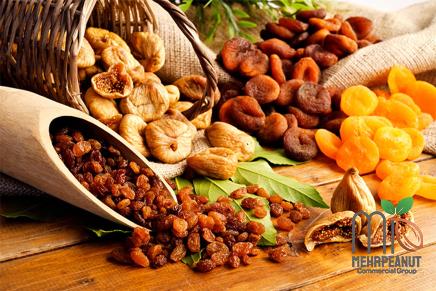
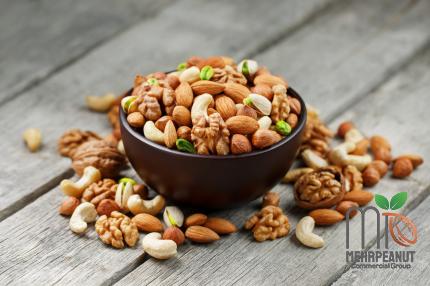

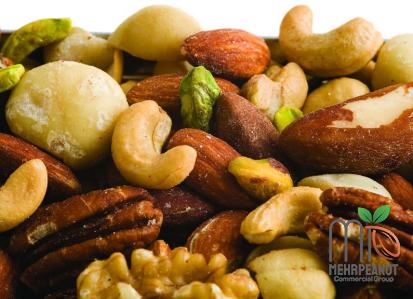
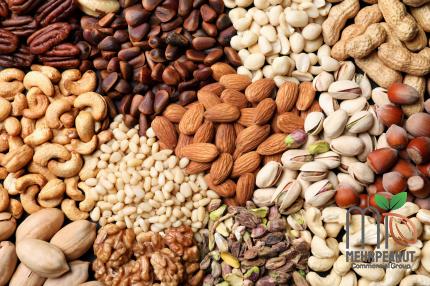
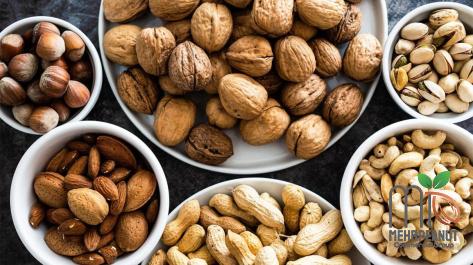
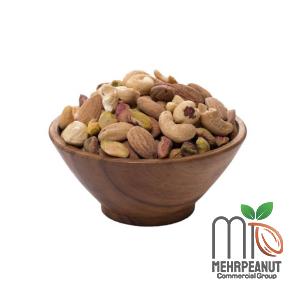
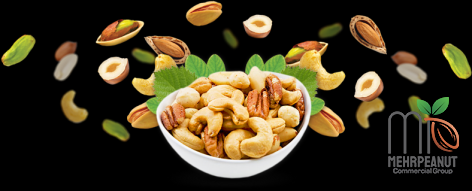
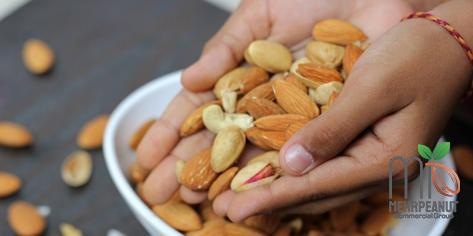
Your comment submitted.